8. Inchon (1981)
Estimated Budget: $46 million ($126.8 after inflation)
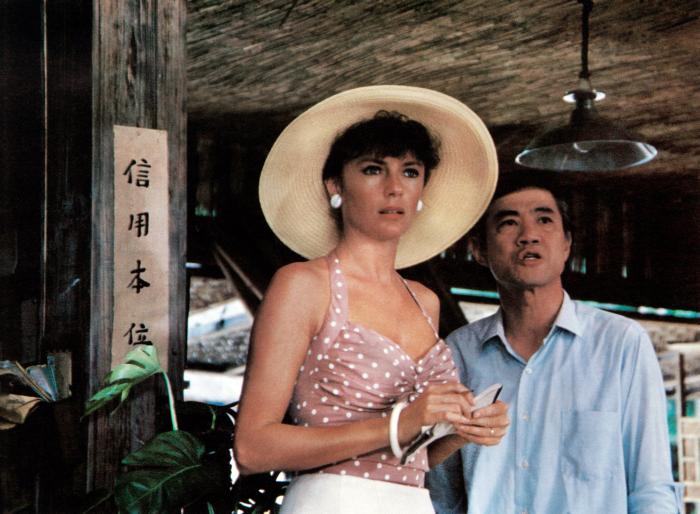
Cue one of the biggest box-office flops (when adjusted for inflation) ever. The first signs that choosing to make Inchon into a movie might not have been the best idea came during its problematic shooting. Cast member David Janssen died of heart attack during filming, which led to reshooting of many scenes, and the cast and crew were also caught up in a typhoon at one point.
The movie also required the usage of cardboard cutouts for some of the planes and one of the intended settings, a lighthouse at Incheon, was destroyed by the aforementioned typhoon. A South Korean and American co-production, the movie was to serve as a dramatized recreation of the Battle of Inchon.
The cast included renowned acting talents Laurence Olivier, Toshiro Mifune, and Jacqueline Bisset, as well as Richard Roundtree and Ben Gazzarra. Perhaps the best way to convey the lackluster performance of Inchon is like so: the movie was withdrawn from the theatres, has never been released on home video, and is seldom shown on television.
At the third Golden Raspberry Awards, Inchon won four of its five nominations: Worst Picture, Worst Director (Terence Young), Worst Actor (Olivier), and Worst Screenplay (Robin Moore and Laird Koenig).
7. How the Grinch Stole Christmas (2000)
Estimated Budget: $123 million ($179 million after inflation)
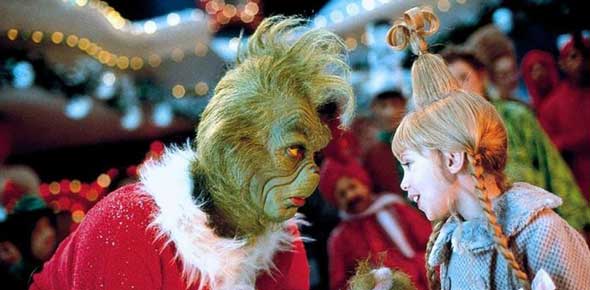
Boris Karloff as the animated Grinch in the beloved TV special How the Grinch Stole Christmas! was both frightening and charming. Jim Carrey as the live-action and very furry Grinch in Ron Howard’s 2000 film was ridiculous and bumbling. While the makeup, costumes, and sets are actually pretty good in the movie, the other, more crucial aspects, like acting, writing, and directing, are quite bad.
The story is one that most people know, about a hater of Christmas who tries to steal the Christmas spirit away from a town and comes to appreciate Christmas and embody the meaning of Christmas more than anyone else in the world. Well, that was the story that Dr. Seuss wrote and most everyone knows.
The story in this film has more to it because you can’t make a feature length film from Seuss’ story, or at least that’s what Howard believed. In the movie, there is an entire backstory created for the Grinch that explains his distaste for Christmas and the Whos, he is not as isolated as the story makes him out to be, as he will occasionally go down to Whoville, and Cindy Lou Who is transformed into a lead character. Any charm from the television special is replaced with constant innuendos and a movie that acts as if it does not want to give the audience a pleasant watching experience.
6. Transformers: Revenge of the Fallen (2009)
Estimated Budget: $200 million ($233.6 million after inflation)
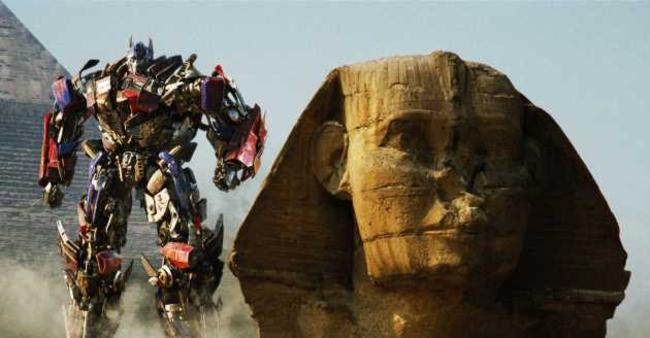
Michael Bay: Round Two. A critical and commercial success, Bay’s Transformers (2007) left much to be desired and there was positive buzz surrounding the expectations for the films to come for the franchise. All those expectations were dashed with the release of Transformers: Revenge of the Fallen. The movie was still incredibly successful on the commercial level but drove critics out of the theatres with extreme distaste for the second installment.
The movie contained atrocious acting, even worse writing, and its story failed to excite as it was meant to. It starts with Sam Witwicky (Shia LaBeouf), hero of the first movie, beginning on his newest and most dangerous adventure yet… college.
Fortunately for the audience (or maybe unfortunately, based on how the rest of the movie was), Sam does not spend a lot of time at college, as he and his girlfriend Mikaela (Megan Fox) join the Autobots in their quest to learn some of the secrets of the Allspark to thwart and defeat the legendary Decepticon The Fallen, who has returned to end Earth’s existence.
Like the first movie and the later installments, of which there are three, Revenge of the Fallen boasts impressive visual effects, which is really all anyone can hope from Bay. The most nominated and awarded movie at the 30th Golden Raspberries, Transformers: Revenge of the Fallen left with the esteemed title of Worst Picture, as well as Worst Director (Bay) and Worst Screenplay (Ehren Kruger, Roberto Orci, and Alex Kurtzman).
5. The Last Airbender (2010)
Estimated Budget: $150 million ($172.3 million after inflation)
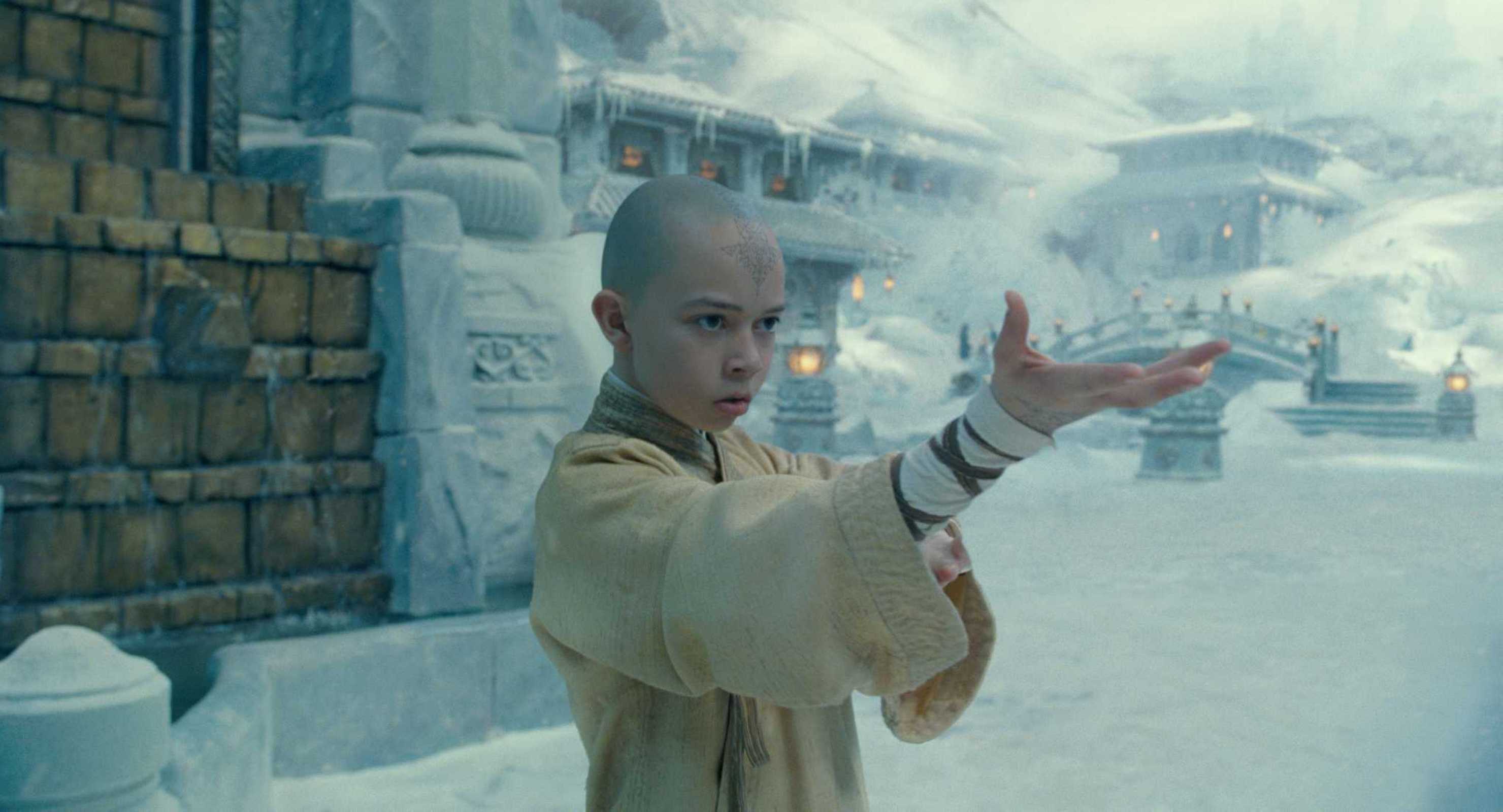
By the end of 2010, M. Night Shyamalan was looking more and more like one of the biggest could-have-beens of the directing world. After directing The Sixth Sense (1999), his next two films, Unbreakable (2000) and Signs (2002), were, while not as successful as The Sixth Sense, still quite well-received. Then came The Village (2004), Lady in the Water (2006), and The Happening (2008).
With just three releases, he wiped out any confidence that he had given people. His seventh release, adapted from the immensely popular television cartoon Avatar: The Last Airbender, could have begun his resurrection. Instead, it proved that he his decline was nowhere near finished.
The movie follows the journey of Aang (Noah Ringer), an airbender and the Avatar, Katara (Nicola Peltz), a waterbender, and her brother Sokka (Jackson Rathbone), as they hope to develop the Avatar’s skills in mastering the four elements (water, earth, fire, and air) so that he can stop the Fire Nation’s invasion and save the world from destruction.
Originally expected to be the first of three movies, one for each of the television series’ seasons, the universal panning by critics and overwhelming displeasure from audiences have put a halt on the other two movies. There was nothing remarkable about the movie, and only James Newton Howard’s score deserves any praise.
The direction was Shyamalan’s worst at the time of its release, none of the performances was noteworthy, the writing was poor, the visual effects were underwhelming, and the desertion of the source material received backlash.
A big time “winner” at the 31st Golden Raspberry Awards, The Last Airbender won five of its nine nominations: Worst Picture, Worst Director (Shyamalan), Worst Supporting Actor (Rathbone), Worst Screenplay (Shyamalan), and Worst Eye-Gouging Misuse of 3-D.
4. Wild Wild West (1999)
Estimated Budget: $170 million ($255.7 million after inflation)
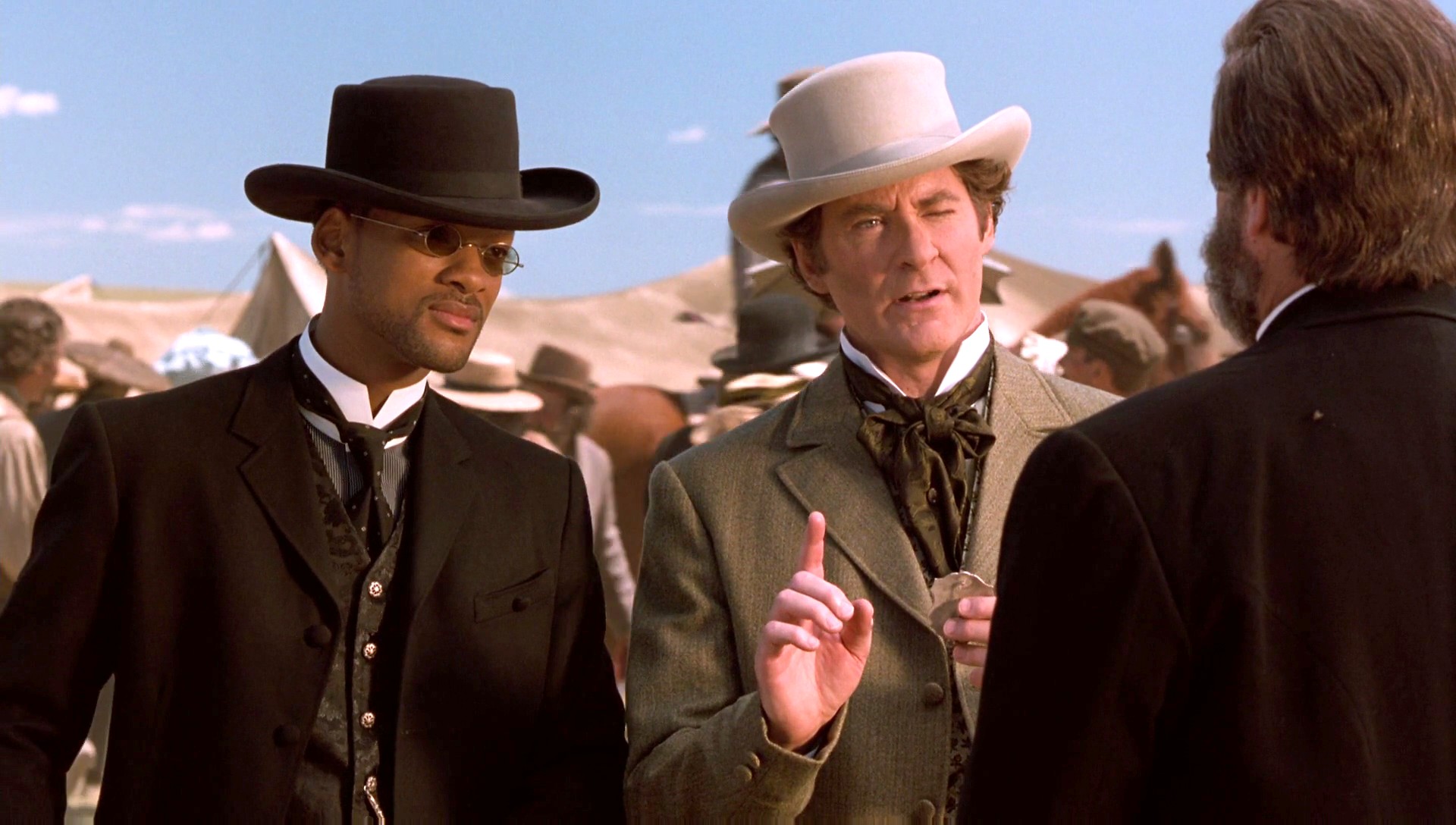
Here’s another failed attempt at adapting a much-beloved television show. The Wild Wild West was a Western/spy/science fiction series that followed two secret service agents as they protected President Ulysses S. Grant and solved crimes using their steampunk technological advances.
Starring Will Smith and Kevin Kline as the secret service agents and directed by Barry Sonnenfield, who was familiar with a similar plot formula from his largely successful and acclaimed film Men in Black (1997), Wild Wild West had all the pieces to make it a summer blockbuster. Even with Kenneth Branagh, Salma Hayek, and Ted Levine in supporting roles, the film performed much worse than anticipated and was hated by critics.
The film suffered from the usual problems, like poor writing, acting, and directing, while also boasting some very laughable special effects (something that should not have been possible with such a large budget).
The movie also drew the ire of fans of the television show for its excessive changes to the characters. At the 20th Golden Raspberry Awards, Wild Wild West won five of its nine nominations: Worst Picture, Worst Director (Sonnenfield), Worst Screen Couple (Kline and Smith), Worst Screenplay (S. S. Wilson, Brent Maddock, Jeffrey Price, Peter S. Seaman), and Worst Original Song (“Wild Wild West (feat. Dru Hill and Kool Moe Dee)” by Will Smith).
3. Speed 2: Cruise Control (1997)
Estimated Budget: $110 million ($171.7 million after inflation)
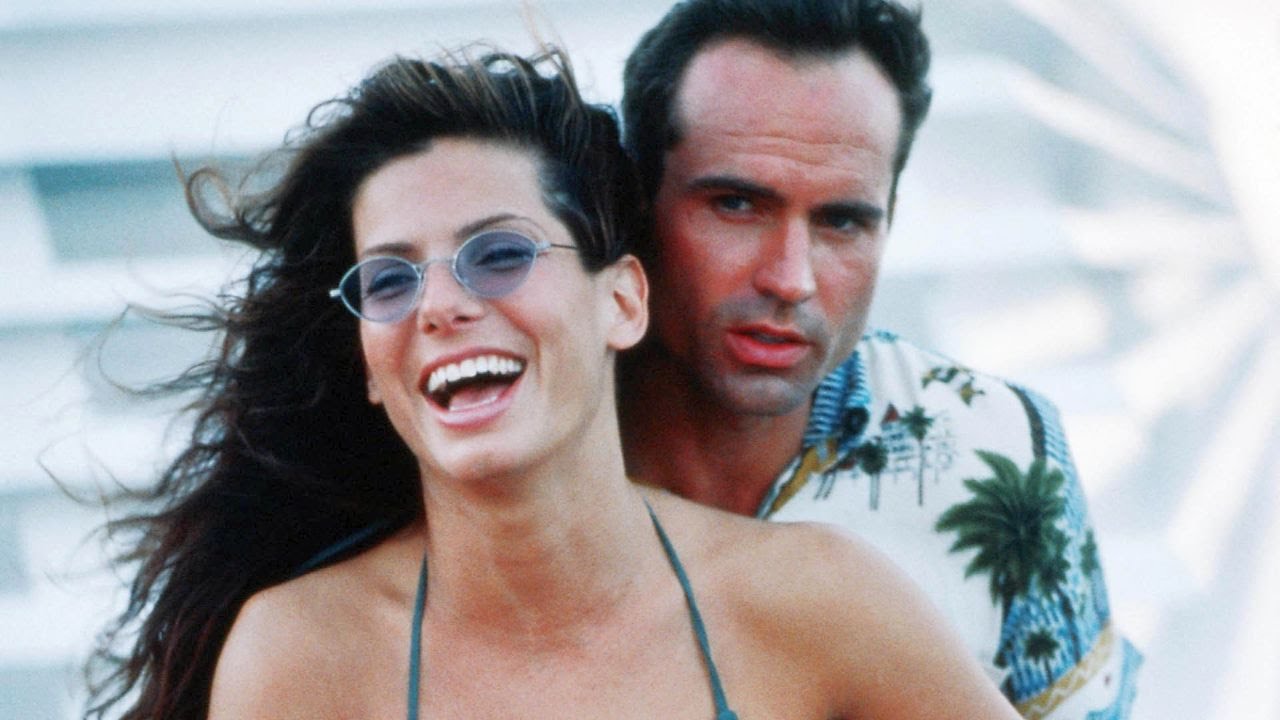
In this thrilling sequel to the fantastic 1994 film Speed, we see Annie (Sandra Bullock) finding herself in a somewhat similar situation to the predecessor as she is enjoying a cruise with her husband Jack (Keanu Reeves), except this is not a thrilling sequel and she is in fact on the cruise with her boyfriend Alex (Jason Patric).
If things had gone the way the studio and director Jan de Bont had originally hoped, then the movie may very well have been both thrilling and starring Reeves reprising his role from the first film.
Instead, Speed 2: Cruise Control did not quite reach the level of success or acclaim of Speed. Instead of driving a bus that cannot decrease its speed beyond 50 miles per hour, Annie is riding on a cruise ship that, after having its communications system destroyed and destination altered, is heading for a collision with an oil tanker, as per the wishes of a deranged passenger (played by Willem Dafoe).
De Bont reportedly rejected several plot ideas from 20th Century Fox in favor of a frequent nightmare he had, one of a runaway cruise ship heading for an island. At least de Bont was true to his movie’s initial form, Speed 2 is a nightmare to sit through. Garnering eight nominations at the 18th Golden Raspberry Awards, Speed 2: Cruise Control only won one Razzie: Worst Remake or Sequel.
2. Waterworld (1995)
Estimated Budget: $172 million ($282.8 million after inflation)
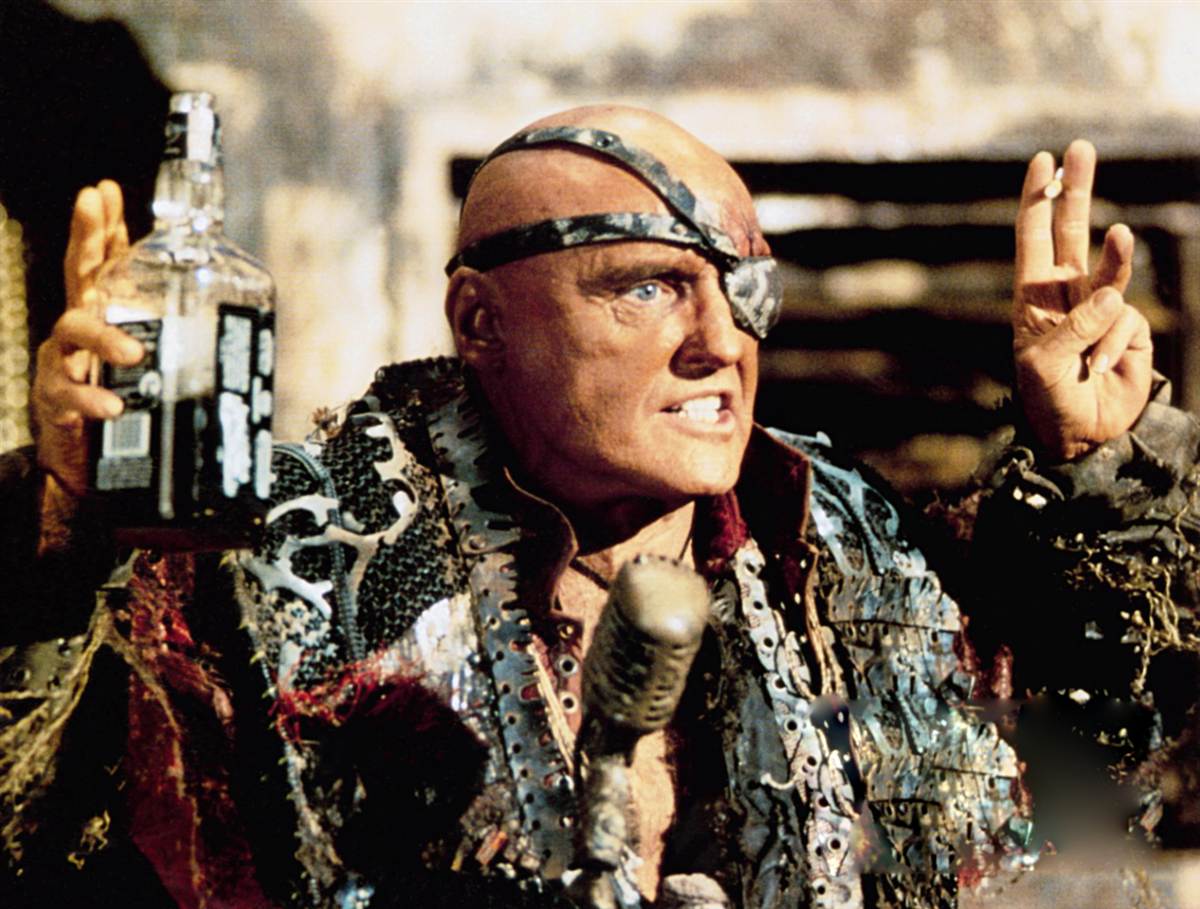
Controversial at the time of its release for its notoriously high budget, Waterworld was the most expensive film ever made when it was finally finished and released in 1995.
The movie is one of the greatest examples of an interesting and intriguing concept being wasted on a terrible movie. Set in an unknown year (with speculation pointing to some time near 2500), Waterworld tells the story of an unnamed character (referred to as “The Mariner” and played by Kevin Costner) who has developed gills to adapt to Earth’s new environment.
The entire world has been covered in water after the melting of the polar ice caps and he, after rescuing a woman and child (Jeanne Tripplehorn and Tina Majorino, respectively), embarks with them to try and find Dryland, a mythical location where land is the surface rather than water. They are also pursued by the ruthless Smokers, led by the Deacon (Dennis Hopper).
As noted earlier, the movie’s concept is one that could have inspired a unique and compelling post-apocalyptic science fiction film. Instead, poor writing, even poorer acting, and uneven directing by Kevin Reynolds (and Costner, after his persistent comments made Reynolds abandon the project) squandered any chance the movie had at becoming something special. Hopper won the Razzie for Worst Supporting Actor and the film received an additional three nominations.
1. Batman & Robin (1997)
Estimated Budget: $125 million ($195.1 million after inflation)
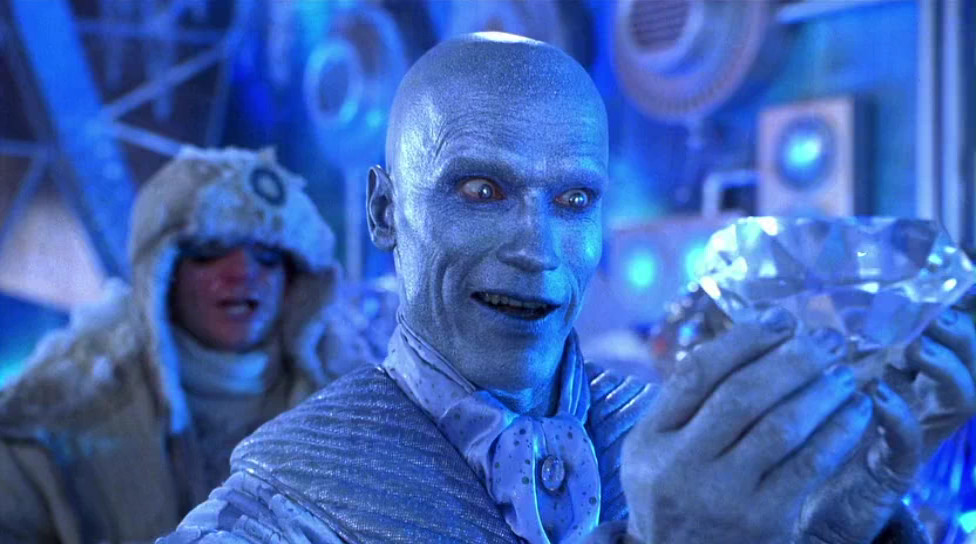
What do you get when you combine the acting of George Clooney, Arnold Schwarzenegger, Uma Thurman, Chris O’Donnell, and Alicia Silverstone, the direction of Joel Schumacher, a $125 million budget, a soundtrack that includes Smashing Pumpkins, Jewel, Bone Thugs-n-Harmony, R. Kelly, Goo Goo Dolls, and R.E.M., a screenplay written by future Oscar-winner Akiva Goldsman, and Batman, arguably the most popular superhero of all time? You get an absolute disaster of a movie that deserves the distinction of worst big-budget movie of all time.
Where to begin with this one? That’s a difficult question. How about the plot? Batman (Clooney) and Robin (O’Donnell), while having severe issues with keeping their partnership intact, attempt, along with the help of Batgirl (Silverstone), to thwart the evil plans of Mr. Freeze (Schwarzenegger) and Poison Ivy (Thurman). What are the supervillains’ aims? To freeze humankind, thus killing all people and allowing the world to be overrun with mutant plants.
There is no way you could recite the plot of this movie with a straight face or a serious tone. Watching it with a straight face is also very difficult. The acting is abysmal at best. The writing from Goldsman is pathetic, and he clearly needed some time before he was Oscar-ready (which he proved when he penned A Beautiful Life (2001)). The sets and costumes are just plain bad. The direction is shameful and on top of that, the cinematography is bad enough to make the viewer shut their eyes and pray for the movie to end.
This installment in Batman’s filmography makes Batman v Superman: Dawn of Justice look like a masterpiece of fine filmmaking. The movie was nominated for eleven Golden Raspberries, with Silverstone winning Best Supporting Actress for the movie’s lone award.
So, what’s the bright spot to Batman & Robin? Well, George Clooney apologized for destroying Batman on The Graham Norton Show in 2015 and remarked that he always apologizes to people for Batman & Robin. That’s not really a bright spot, but at least someone involved recognizes how awful it was.